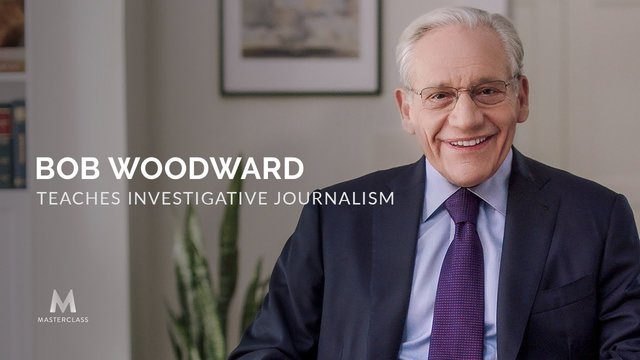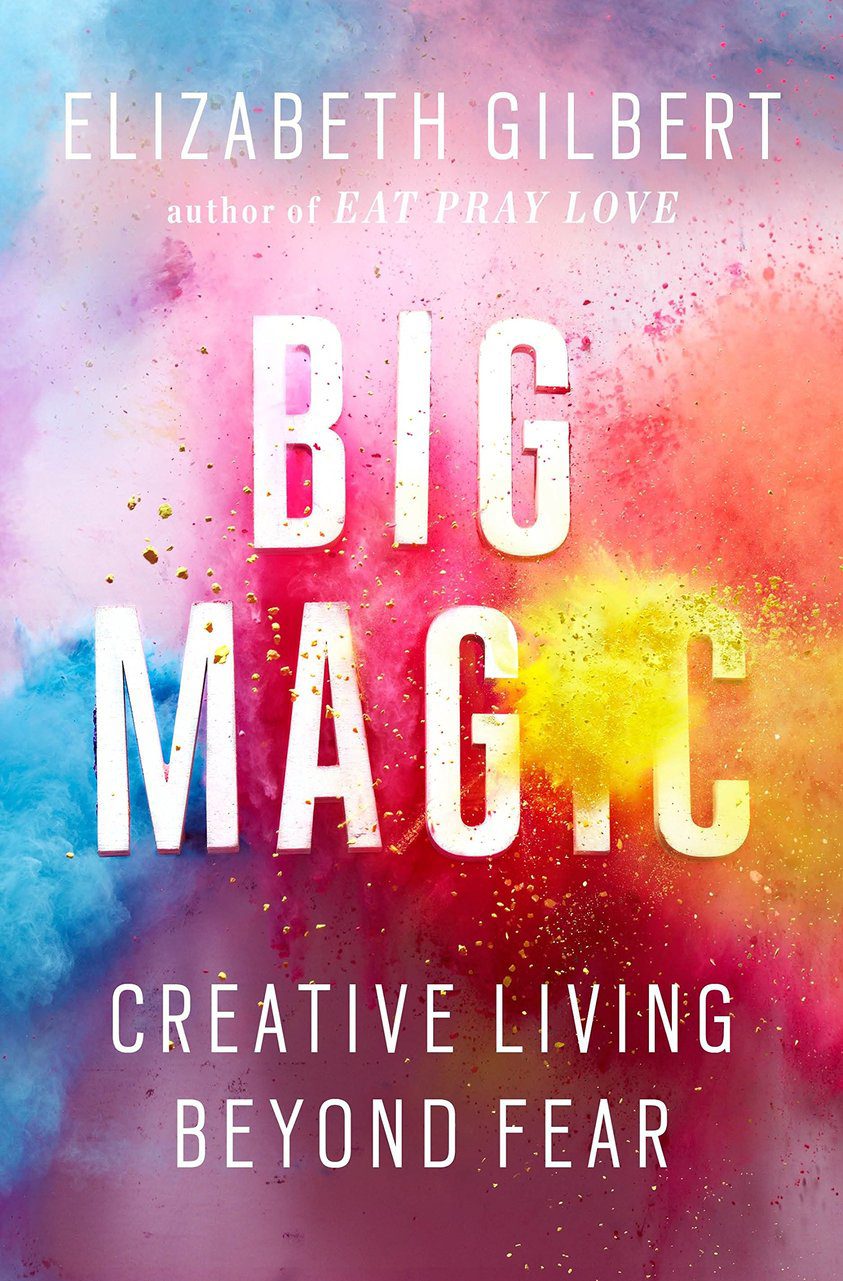The starting point in journalism is that there are no boundaries. Everyone has their own version of the truth. But there are facts. There is reality. And as a reporter you can come up with the best obtainable version of the truth.—Bob Woodward
Bob Woodward is an associate editor of the Washington Post, where he has worked since 1971. He has shared in two Pulitzer Prizes, first in 1973 for the coverage of the Watergate scandal with Carl Bernstein, and second in 2002 as the lead reporter for coverage of the 9/11 terrorist attacks.
Bob has authored or coauthored 18 books, all of which have been national nonfiction bestsellers. Twelve of those have been #1 national bestsellers. In listing the all-time 100 best nonfiction books, Time magazine has called All the President’s Men, by Bernstein and Woodward, “perhaps the most influential piece of journalism in history.
Here are my favorite take aways from viewing Bob Woodward’s Masterclass on Investigative Journalism:
The business of journalism is collecting, verifying, and assessing information.
- Journalism is about understanding an issue in a comprehensive way..
Bob Woodward’s Guiding Principle for Journalim
Leave your comfort zone
Good reporters aren’t afraid to cover a wide variety of subjects, and to do so requires hard work and a willingness to learn.
Leave opinion out of stories.
Always separate emotional issues from the facts. Failing to separate opinion from fact costs you credibility with the public.
Avoid taking political sides
Bob is careful to not show partiality to any one news network, giving interviews to news organizations on both ends of the political spectrum. Bob doesn’t vote in presidential elections in order to send the message that he is “in the middle of the road.” He is a reporter and citizen without a political agenda.
Mentality of Independence
Do what you feel you must (within the law) to get the story, even if your manager might disapprove of your methods.
Great stories have to do with power—how people [are] using power, abusing power.
Finding the Story:
- The use and abuse of power is at the root of most great in-depth reporting. But another aspect of a superb story is surprise. Bob calls these “bacon-cooler stories.” If you’re eating breakfast while reading the paper and a story is so surprising that the bacon on your fork remains uneaten and cools down, you know it’s compelling.
- If a more important story appears in the midst of your research or writing, pivot to cover that story. It’s okay to go looking for one story and find another one entirely. For a journalist, this is not an unusual occurrence
The purpose of an interview … is not ‘gotcha,’ is not to catch. … It is to understand, in my view.
Bob’s Approach to Reporting
- Bob’s central reporting strategy is about persistence—you must show energy and curiosity, and demonstrate the willingness to work long and hard. If you are supposed to work eight hours, work ten. Invest time in your craft and don’t be passive.
- Bob says that journalism is about “time against the problem.” You need to completely immerse yourself in the story and always remain open to what unfolds. You build a case incrementally.
On Criticism
- A good journalist cannot protect himself or herself from criticism. In fact, journalists have a professional obligation to seek comment from the people who are most likely to criticize them. The best safeguard against mistakes is the integrity and thoroughness of your own reporting, so don’t cut corners.
Documentation
- Written sources—documents and memos—confer authority to your reporting, which is essential in a moment when journalism is sometimes perceived as dishonest. A story nearly always has troves of notes and other written materials associated with it, and you must explore all avenues to find them.
Develop a good bookkeeping system. Make copies and keep everything.
Finding Sources
- When reporting, you have to knock on doors, set up meetings, and ask people to help you. To develop these relationships, especially with sources who might be hesitant to divulge important details, you will need to be persistent and patient. Sometimes that means calling an office five or six times before someone will meet with you. Most importantly, never give up on finding sources.
I need your help.’ Those are the four most potent words in journalism.
Interviewing
- Remember that silence is sometimes the most effective tactic. Let it “suck out” the truth. More than anything, a great interviewer adapts to the conversation as it moves. Ask why, ask for clarity, ask why again, follow up until you get the information you need.
You are dealing, in journalism, with contested ground. The more contested the ground is, the more the emotions are gonna run high and the stakes are gonna be high. And that’s fine. It’s part of that process.
- Don’t forget to apply your own common sense. Sometimes the key to understanding a case is staring you right in the face.
Writing Routine
- It’s essential to discipline yourself to write every day. Give yourself an assignment to write a certain number of words, and then do it.
- Another tactic is to write what Bob calls a “premature” first draft before you have everything figured out. Typing up everything you know will show you where the holes are. Consider Bob’s “rule of six,” his belief a story should have at least six strong elements. Another great way to sketch out your story and get an immediate reaction is to talk through your story with a trusted reader. What questions do they have? What doesn’t make sense?
[This is an] important lesson about journalism: first, be a human being.
- If you don’t present the facts correctly—even if the essence of what you’re saying is correct—you compromise the integrity of your story and your news organization.
Recommended
- Watch the film The Post (2017), which depicts the showdown between the Washington Post journalists and the US government over the Pentagon Papers
- The Washington Post’s ethics guidelines.
- The Longform Podcast is a weekly conversation with a non-fiction writer on how they tell stories.
Recommended Books
- The Elements of Style by William Strunk Jr. and E.B. White
- On Writing Well by William Zinsser; | Book Summary
- On Writing by Stephen King; | Book Summary
- The Sense of Style by Steven Pinker;
- Bird by Bird by Anne Lamott;
- How to Write Successful Nonfiction by James B. Stewart.
All the best in your quest to get better. Don’t Settle: Live with Passion.



1 Comment
Pingback: Lessons Learned from N. K. Jemisin’s Masterclass Session on Fantasy and Science Fiction Writing. – Lanre Dahunsi